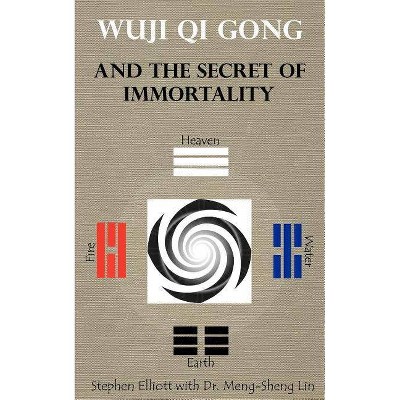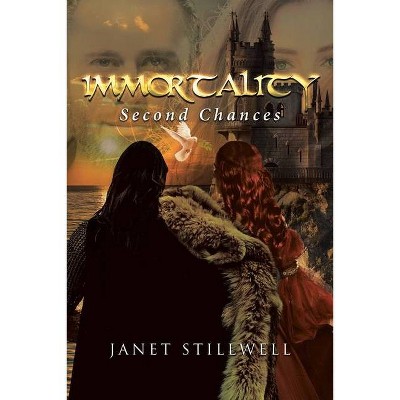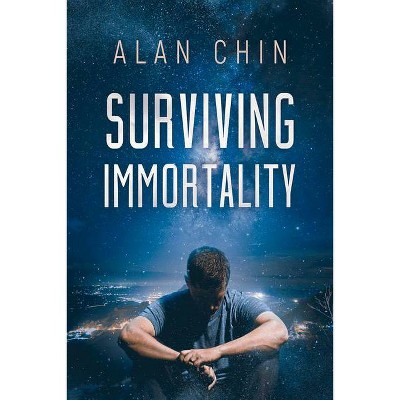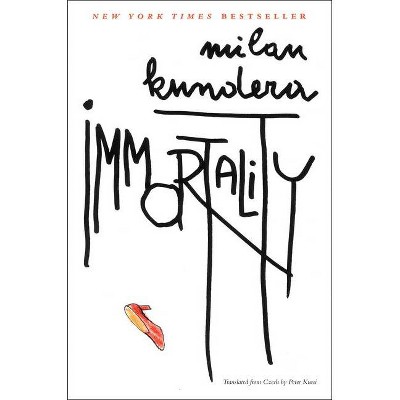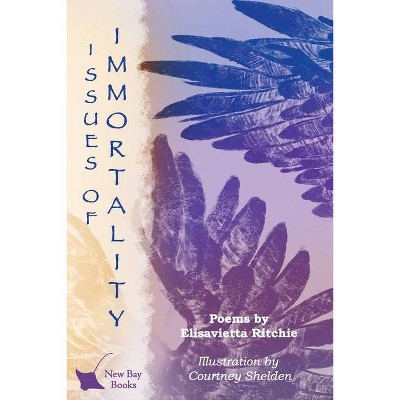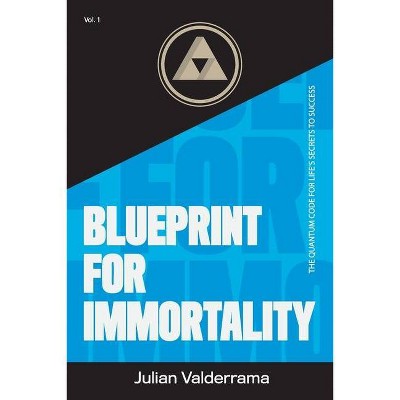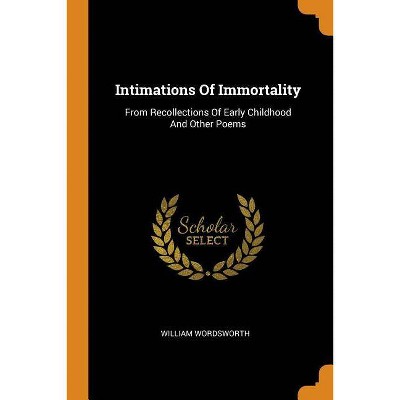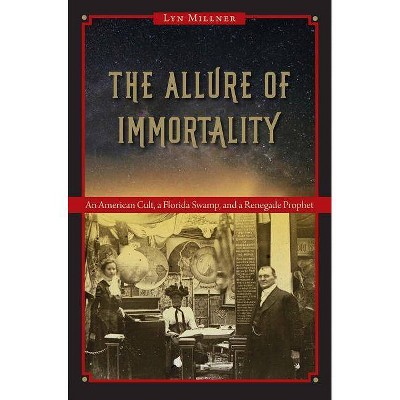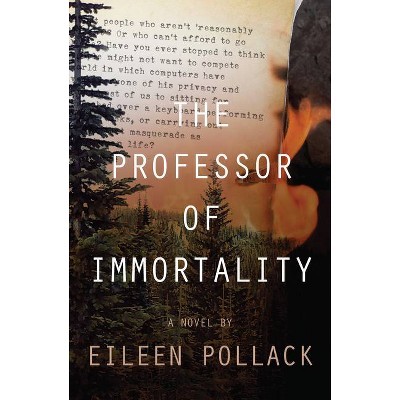Immortality - by Stephen Cave (Paperback)
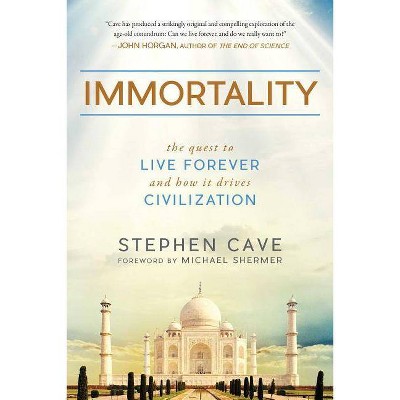
Similar Products
Products of same category from the store
AllProduct info
"Cave has produced a strikingly original and compelling exploration of the age-old conundrum: Can we live forever, and do we really want to?"<br> --<b>John Horgan, science journalist and author of <i>The End of War </i></b><br> "<i>Immortality</i> is a fascinating history of man's greatest obsession and poses a stunning theory of society." <br> --<b>The Daily Beast</i></b><br> "In <i>Immortality</i> Stephen Cave tells wonderful stories about one of humanity's oldest desires and comes to a wise conclusion." <br> --<b>Stefan Klein, author of <i>The Science of Happiness</i> and <i>The Secret Pulse of Time</i></b><br> "A beautifully clear and entertaining look at life after death. Cave does not shrink from the hard questions. Bold and thought-provoking." <br> --<b>Eric Olson, author of <i>The Human Animal</i> and <i>What Are We? </i></b><br> "A must-read exploration of what spurs human ingenuity. Every once in a while a book comes along that catches me by surprise and provides me with an entirely new lens through which to view the world. . . . Such is the case with Stephen Cave's book <i>Immortality</i>. . . . Cave presents an extremely compelling case--one that has changed my view of the driving force of civilization as much as Jared Diamond did years ago with his brilliant book <i>Guns, Germs and Steel</i>."<br> --<b>S. Jay Olshanksy, <i>New Scientist</i> magazine</b><br> "Informed and metaphysically nuanced. . . . Cave presents his arguments in a brisk, engaging style, and draws effectively upon a wide-ranging stock of religious, philosophical, and scientific sources, both ancient and contemporary." <br> --<b><i>Weekly Standard</i></b><br> "In his survey of the subject, Stephen Cave, a British philosopher, argues that man's various tales of immortality can be boiled down into four basic "narratives". . . . For the aspiring undying, Mr Cave unfortunately concludes that immortality is a mirage. But his demolition project is fascinating in its own right. . . . If anything, readers might want more of Mr. Cave's crisp conversational prose." <br> --<b><i>The Economist</i></b><br> "Cave explains how the seeking of immortality is the foundation of human achievement, the wellspring of art, religion and civilization. . . . .The author is rangy and recondite, searching the byways of elixirs, the surprises of alchemy, the faith in engineering and all the wonder to be found in discussions of life and death. . . . Luminous." <br> --<b><i>Kirkus Reviews</i></b><br> "A dramatic and frequently surprising story of the pursuit of immortality and its effects on human history." <br> --<b><i>Booklist</i></b><br> "Cave is smart, lucid, elegant and original. <i>Immortalit</i>y is an engaging read about our oldest obsession, and how that obsession propels some of our greatest accomplishments." <br> --<b>Greg Critser, author of <i>Eternity Soup</i></b><br> "An epic inquiry into the human desire to defy death--and how to overcome it. Cave traces the histories of each of his four immortality narratives through the world's great religions, heroes, leaders, thinkers and stories. It's an epic tale of human folly, featuring a cast of characters including Gilgamesh, Dante, Frankenstein, the King of Qin, Alexander the Great and the Dalai Lama. Cave, a Berlin-based writer and former diplomat, is an admirably clear elucidator, stripping down arguments to their essences and recounting them without any unnecessary jargon." <br> --<b><i>The Financial Times</i></b><br> "<i>Immortality</i> plumbs the depths of the human mind and ties the quest for the infinite prolongation of life into the very nature of civilization itself. Cave reveals remarkable depth and breadth of learning, yet is always a breeze to read. I thoroughly enjoyed his book--it's a really intriguing study." <br> --<b>David Boyd Haycock, author of <i>Mortal Coil</i> and <i>A Crisis of Brilliance</i></b><br> "[Cave's] sort of nonfiction writing is exciting. It gets the juices flowing and draws one into the material. What Cave does so well throughout Immortality is to take the reader by the hand and carefully guide her or him through each concept, ensuring understanding before exploring assorted variations and difficulties. He's writing for searchers, not people collecting knock 'em-dead refutations of positions they've already rejected. And his appeal is to intellectual curiosity." <br> --<b><i>The Humanist</i></b><br> "I loved this. Cave has set himself an enormous task and accomplished it--in spades. Establishing a four-level subject matter, he has stuck to his guns and never let up. As he left one level and went to the next, I was always a little worried: Would he be able to pull it off? This was especially true as he approached the end. There is a sense in which each level, as he left it smoking in the road, looked easy as he started the next. In fact, the last level, while it is the most difficult, is the best, the most satisfying. I am happy to live in the world Cave describes." <br> --<b>Charles Van Doren, author of <i>A History of Knowledge</i></b><br> "This book by Stephen Cave offers a helpful framework for understanding the various different kinds of immortality. Cave employs this framework to analyze these types of immortality and to argue that the quest for immortality is misguided. Cave's insights throughout the book are deep, and his argumentation is compelling and well-informed by all of the relevant literature. It is also a beautifully written and highly accessible book. I recommend it highly."<br> --<b>John Martin Fischer leader of the Templeton Foundation's Immortality Project, and author of <i>Near-Death Experiences</i></b>
Price History
Price Archive shows prices from various stores, lets you see history and find the cheapest. There is no actual sale on the website. For all support, inquiry and suggestion messages communication@pricearchive.us
